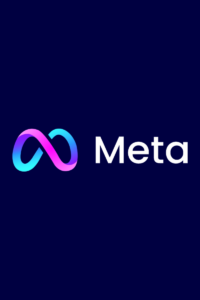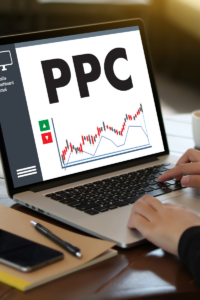Meta’s Fact-Checking Rollback: What It Means for Digital Marketing
In a recent move sparking powerful conversation, Meta has reduced their fact-checking efforts across major social media platforms like Facebook and Instagram.
This decision marks a pivotal shift in managing online content, raising important questions about the future of digital marketing, paid advertisements, and brand safety in a less-regulated digital environment.
In this blog, we’ll dive into what this rollback means for the digital marketing landscape, how it could impact your strategies, and what to expect in 2025.
Meta’s Rollback: What It Means for Content 
Meta’s decision to scale back its fact-checking policies represents a significant shift in how misinformation is managed across its platforms. As reported by NBC News, this move is part of a larger strategy to transform the platform into a space that prioritizes free expression. However, critics argue that it could open the door to a surge in unverified content, making it easier for misinformation to spread.
Meta introduced its fact-checking program in 2016, responding to criticism that Facebook had helped propagate fake news during the presidential election. Over the past decade, Facebook has rapidly expanded. But its growth has been accompanied by increasing scrutiny over its lack of content regulation—particularly regarding the posts and recommendations appearing in its News Feed.
This decision comes at a pivotal moment, as debates over the balance between free speech and the responsibility of tech platforms to manage content are intensifying. Meta’s vision for a “Town Square” model on Facebook and Instagram involves fewer content restrictions, allowing users to share verified information without the oversight of third-party fact-checkers. Let’s dive deeper into what this rollback means for the future of digital marketing.
 What This Means for Digital Marketing
What This Means for Digital Marketing
The new Meta updates introduce opportunities and challenges for businesses and digital marketers. Marketers must navigate a more dynamic and unpredictable digital landscape as misinformation risks increase. Content strategies must be adapted to help ensure campaigns maintain credibility and effectiveness in a less regulated environment. Here are some key Meta implications to consider:
1. Increased Ad Visibility
With fewer restrictions on content, marketers may experience improved ad visibility across Meta platforms. This change can particularly benefit campaigns that previously faced challenges due to strict fact-checking protocols or overly restrictive advertising policies. For instance, ads promoting niche or controversial topics may reach a broader audience without being flagged or suppressed. However, this also means marketers must be more strategic in crafting messages that align with their brand identity while taking full advantage of the increased reach.
2. Higher Risk of Misinformation
The relaxation of stringent fact-checking measures creates an environment where misinformation can spread unchecked, which poses new challenges for marketers. Brands need to exercise vigilance, making sure that their ads are not only factually accurate but also perceived as credible by their target audience. Marketers may also need to adopt crisis management strategies to address potential backlash if their ads are mistakenly associated with misleading or harmful content, which could tarnish a brand’s reputation.
3. Enhanced Opportunities for Viral Content
In a freer content ecosystem, marketers can potentially leverage more creative and viral campaigns without fear of being flagged or suppressed. However, this requires a fine balance to help ensure content remains ethical and trustworthy.
4. Brand Safety Concerns
With the possibility of ads appearing next to questionable content, maintaining brand safety becomes more challenging. To mitigate this, marketers should allocate resources to monitor ad placements rigorously. Employing tools like exclusion lists, implementing stricter targeting parameters, and working with partners who help prioritize brand safety can help ensure that campaigns align with company values and resonate positively with the intended audience.
What Meta Changes Mean for Paid Ads 
Meta is changing the landscape for paid advertising. With fewer restrictions, advertisers may find new opportunities to reach broader audiences and experiment with creative campaigns previously limited by stringent fact-checking protocols. However, this less-regulated environment also comes with potential risks, requiring advertisers to be more vigilant about how their ads are placed and perceived.
Here’s what to expect and how to prepare:
1. Targeting and Engagement
Marketers may see changes in audience targeting and engagement rates as user behavior adapts to the new rules. An uptick in polarizing or sensational content could influence how Meta ads perform. While some ads might gain more traction due to heightened visibility in a less restricted environment, others could struggle to stand out amid the noise. It’s essential for marketers to monitor audience behavior and engagement trends closely, adjusting targeting strategies to help ads resonate with the right people at the right time.
2. Ad Monitoring and Reporting
Ad transparency may suffer as fewer content restrictions are in place. Businesses should prepare for increased scrutiny from consumers and watchdog groups, necessitating proactive ad monitoring and reporting practices.
3. Trust and Credibility
With users potentially growing skeptical of the platform’s content authenticity, marketers must emphasize trust and credibility in their messaging. Transparent campaigns and clear brand communication will be crucial for maintaining audience trust.
Navigating Meta’s New Landscape
The changes in Meta’s content regulation approach have created opportunities and challenges for digital marketers. While the reduced restrictions offer greater flexibility in campaign creativity and visibility, they also demand a more strategic approach to mitigate risks like misinformation and brand safety concerns. To adapt to these changes effectively, digital marketers should consider the following strategies:
- Prioritize Ethical Marketing Have your campaigns align with ethical standards and avoid sensationalism. Building trust with your audience is more important than ever.
- Utilize First-Party Data With increased misinformation, relying on first-party data can help brands deliver accurate and personalized ads, strengthening their connection with target audiences.
- Invest in Monitoring Tools Use advanced tools to monitor ad placements and track where your ads appear. This will help mitigate the risks associated with controversial or inappropriate content.
- Embrace Transparency and communicate your brand’s values and intentions in your campaigns. Authenticity will be a competitive advantage in a landscape filled with dubious content.
- Stay informed and up-to-date on Meta’s policy changes and industry trends. Proactive adaptation will help your campaigns remain effective and compliant.
Staying Updated With Onimod Global
At Onimod Global, staying ahead of industry changes isn’t just part of our strategy—it’s our foundation. We continuously monitor the latest trends, platform updates, and regulatory shifts to help our clients remain at the forefront of digital marketing innovation. From major developments like Meta’s fact-checking rollback to emerging technologies and algorithm updates, our team is always on top of what’s next. This dedication allows us to proactively adapt strategies, keeping your campaigns effective in an ever-changing digital landscape.
As we move into 2025 and beyond, we understand the challenges and opportunities of these shifts. As Google Partners, our digital marketing experts combine data-driven insights with creative excellence, crafting campaigns that help reach the right audience and deliver measurable results. Let us help you leverage the latest tools and strategies to drive growth, increase visibility, and achieve your goals in 2025 and beyond.
Contact Onimod Global today to see how we can help your digital marketing efforts.
Q&A: 2025 Digital Marketing Questions Answered
Q: How will the rollback affect smaller businesses?
A: Smaller businesses may benefit from less restrictive advertising policies, potentially gaining greater visibility. However, they must remain cautious about brand safety and ensure their messaging resonates ethically with audiences.
Q: Can brands still report misinformation?
A: Users and brands can still report content they believe violates Meta’s guidelines. However, the rollback means fewer fact-checking resources will be available to evaluate such reports.
Q: What should brands do to maintain credibility?
A: Focus on transparency and authenticity in your campaigns. Use clear, accurate messaging and prioritize building trust with your audience. Onimod Global helps ensure your campaigns stand out for the right reasons, focusing on trust, authenticity, relevance, and precision targeting to help engage your audience.
Q: Will ad performance improve in this environment?
A: While fewer restrictions could boost visibility, the potential for audience skepticism about the platform’s credibility might impact engagement. Continuous monitoring and adjustment will be essential. Onimod Global can help you overcome these challenges by implementing data-driven advertising strategies tailored to your business goals.

